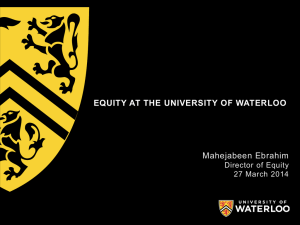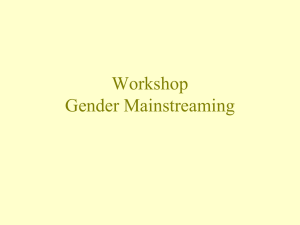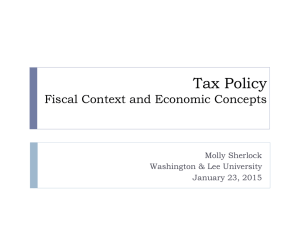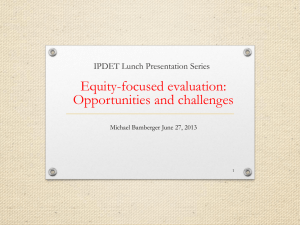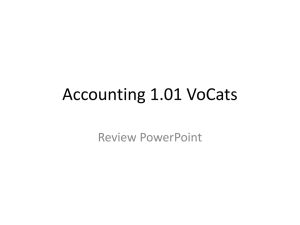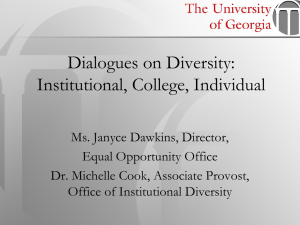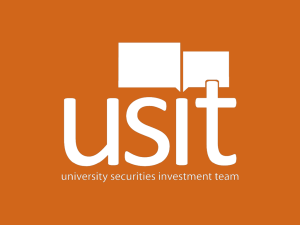and Introduction from President Richard McCormick and Dr. Cheryl
advertisement
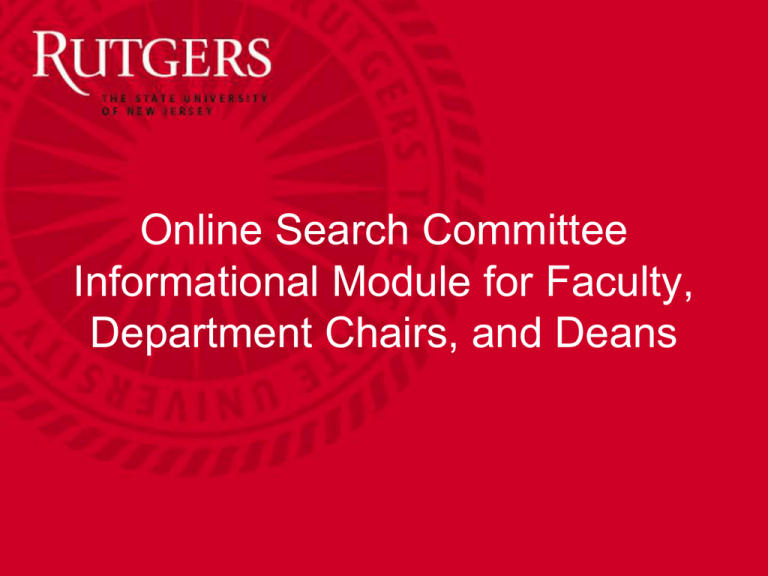
Online Search Committee Informational Module for Faculty, Department Chairs, and Deans Office of Institutional Diversity and Equity President Richard L. McCormick Hiring and retaining an excellent faculty is one of the most important things we do as a university. It is also an intensely competitive and complicated process, one that operates best and most successfully when the university’s many support systems are called into play. Building a diverse and inclusive faculty can be particularly challenging, but it is incumbent upon us to meet that challenge, and to attract and retain the faculty Rutgers needs in order to continue to build excellence. This interactive faculty search module is designed to assist you in meeting that challenge, and to familiarize you with the offices and individuals available to partner with you in those efforts. My thanks to the members of the President’s Council on Institutional Diversity and Equity, the Offices of the Executive Vice President of Academic Affairs, the Vice President and General Counsel, and the Office for the Promotion of Women in Science, Engineering, and Mathematics for their significant assistance in bringing it to fruition. Office of Institutional Diversity and Equity Cheryl Wall: Vision of the President’s Council I’m Cheryl Wall, co-Director of the President’s Council on Institutional Diversity and Equity, a group of senior faculty who represent schools of arts and sciences, business, engineering, pharmacy, and law in Camden, Newark, and New Brunswick. Our charge is to help Rutgers build a faculty for the twenty-first century that is both excellent and inclusive. We are mindful of the fact that our student body is among the most ethnically diverse in the nation. We as a faculty are not. That must change. Since President McCormick convened the Council in spring 2008, my colleagues and I have reviewed the “best practices” for faculty hiring and retention. We have been guided by the research of leading scholars who focus on the creation of diverse workplaces, in general, and the benefits of diversity in the academy, in particular. We have consulted the practices of our peer institutions, including the universities of Michigan, North Carolina, and Virginia. We have hosted the Cornell Interactive Theatre Ensemble, whose presentation I hope that some of you have seen. In spring 2009, we compiled a Handbook for Deans, Department Chairs, and Members of Faculty Search Committees. Now, in partnership with RU FAIR ADVANCE, an NSF initiative led by Professor Joan W. Bennett here at Rutgers, we present this interactive module. Cheryl Wall, Board of Governors Zora Neale Hurston Professor of English and co-Director of the President’s Council on Institutional Diversity and Equity Although we understand that hiring decisions are discipline specific, the research shows us that common issues and challenges arise during searches. The module is designed to suggest the most effective responses to those challenges. It outlines a general process, suggests specific strategies, and identifies resources that will make the search you are undertaking run more smoothly and efficiently. We hope that you will find it valuable and look forward to any suggestions you might have that would make it even more useful. Office of Institutional Diversity and Equity Why a Faculty Search Committee Module? • Ensure a fair, bias-free process based on best practices and active recruitment • Highlight the breadth of topics related to diversifying applicants pools • Introduce new research on recruitment and evaluation of candidates • Self-assess knowledge about best practices in diversity hiring • Provide references for further discussions during the search process Office of Institutional Diversity and Equity How a Faculty Search Committee Module Works? • There are 10 topics in this module. • Each topic has three elements: a description or scenario, a selfassessment component, and an explanation and resources • The total time to complete the module is about 30-minutes. • Participation and completion of the module is required; completion will be registered via your netID login. • Your responses to self-assessment questions will not be recorded or linked to your netID login. No one is keeping track of how many attempts you take to get the best answer. • Clicking on the best answer advances the module; other responses will bring you back to the question. The description or scenario can be accessed for re-review by clicking the replay button. • Online and Handbook resources are available via hyperlinks throughout the module. Office of Institutional Diversity and Equity Topics for the 30-minute module (10) 1) 2) 3) 4) 5) Active Recruitment Determining Disciplinary Focus and Rank of the Position Constituting the Search Committee Reviewing and Ranking Candidates Avoiding Pitfalls in the Process 6) Unconscious Bias 7) Evaluating Reference Letters, CVs, and Published Work 8) Interviewing and the Campus Visit 9) Confidentiality and Compliance 10) Making the Offer Office of Institutional Diversity and Equity Scenarios There are 8 role-playing scenarios in this module. Fictitious characters and departments have been created, though each scenario is meant to be applicable to all departments and centers at institutions of higher education. The Departments • • • • Geography or Human Ecology (1) Chemistry (2) Economics (3) Electrical and Computer Engineering (5) • Marine Sciences (7) • Cell Biology/ Neuroscience (8) • Anthropology (10) The Characters • • • • • • • • • Ed (department chair) Rita (search committee chair) Alex Barbara Carlos Denise John Jordan Others: Ben, George, Nell Office of Institutional Diversity and Equity Rutgers University Online Resources • • • • • • • • • • • • Increasing Faculty Diversity: A Handbook for Deans, Department Chairs, and Members of Faculty Search Committees Academic Appointments Manual Office of Institutional Diversity and Equity Camden Office of Institutional Diversity and Equity University Libraries/Newark Dana Library Diversity Research Center Diversity @ Rutgers University Human Resources Office of Employment Equity Office of Labor Relations Office of the Vice President and General Counsel Center for Race and Ethnicity Office for the Promotion of Women in Science, Engineering, and Mathematics Office of Institutional Diversity and Equity Acknowledgments We would especially like to thank the following institutions for their leadership and support in the development of faculty search committee best practices toolkits •The Online Search Committee Program at University of Virginia •University of Florida Faculty Recruitment Toolkit •University of Michigan Diversity Recruitment and University of Michigan ADVANCE handbook on faculty recruitment •University of North Carolina-Chapel Hill Online Search Committee Training •University of Washington Faculty Recruitment Toolkit •University of Illinois-Chicago WISEST Faculty Search Committee Toolkit •Hunter College Gender Equity Project •Cornell University Office of Diversity and Inclusion and Cornell Interactive Theater Ensemble •A complete webliography of resources is available on the Rutgers Search Committee Module website
